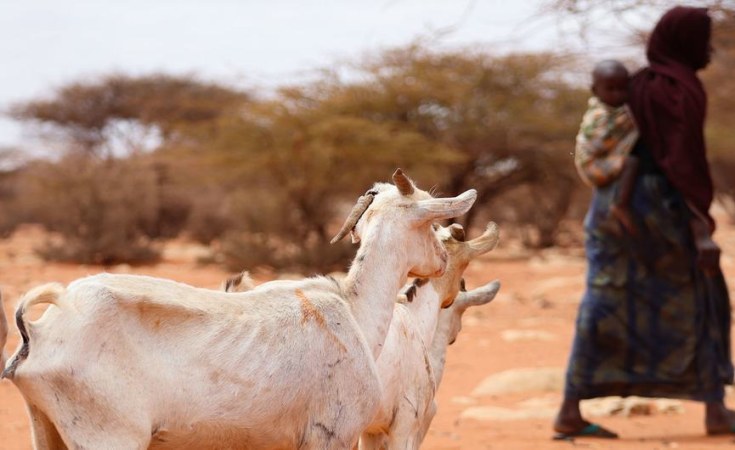A toxic mix of conflict, severe drought and devastating floods has forced more than 1 million people in Somalia to flee their homes in just 130 days – a record rate of displacement for the country.
The figures recorded by UNHCR, the UN Refugee Agency, and the Norwegian Refugee Council (NRC), show that conflict was among the main causes of displacement between 1 January and 10 May this year, while over 408,000 people were displaced by floods sweeping across their villages and another 312,000 people were displaced by ravaging drought. Most of them fled to the regions of Hiraan in central Somalia and Gedo, in southern Somalia.
“These are alarming figures of some of the most vulnerable people forced to abandon the little that they had to head for the unknown,” said NRC’s Somalia Country Director Mohamed Abdi. “With 1 million people displaced already in less than five months, we can only fear the worst in the coming months as all the ingredients of this catastrophe are boiling in Somalia.”
Many of those forced to flee are arriving in overcrowded urban areas and sites already hosting internally displaced people placing immense strain on already overstretched resources and exposing vulnerable people to increasing protection risks such as evictions, family separation and gender-based violence.
Food, shelter, and protection services including child protection and prevention of gender-based violence are among people’s urgent needs.
"The humanitarian needs in Somalia continue to grow. We are working together with humanitarian agencies to respond as best we can, but with new displacement climbing by the day, the needs are overwhelming,” said UNHCR’s Representative in Somalia, Magatte Guisse. It’s a great tragedy to witness the impact on Somalia’s most vulnerable. They are the least responsible for the conflict and the climate crisis but are the hardest hit.”
More than 3.8 million people are now displaced in Somalia, exacerbating an already dire humanitarian situation where some 6.7 million people are struggling to meet their food needs. More than half a million Somali children are severely malnourished. Yet, aid agencies have so far received only 22 per cent of the resources required to deliver much-needed assistance this year.
“We urge the international donors to step up funding to better protect those who are most likely to bear the brunt of the current crisis, otherwise we will never see the end of this unfolding human tragedy,” added Guisse.
ENDS


